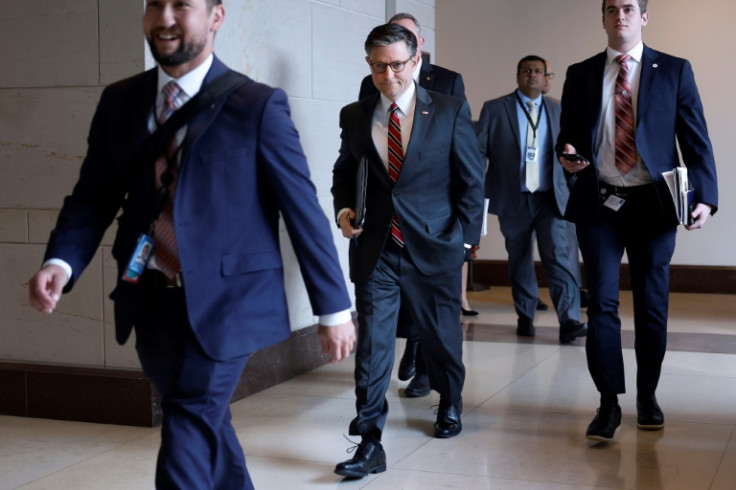Congress Leaders Reach Partial Budget Deal To Avert Government Shutdown

Top congressional leaders, including House Speaker Mike Johnson (R-La.) and Sen. Majority Leader Chuck Schumer (D-N.Y.), struck a partial budget deal Wednesday to prevent a government shutdown.
The agreement addresses six funding bills, four of which were set to expire Friday.
The specific funding bills pertain to critical agencies, including agriculture, veterans affairs, and housing. Under the newly negotiated terms, these agencies will now be funded through March 8, while the remaining government funding will be extended until March 22.
"We are in agreement that Congress must work in a bipartisan manner to fund our government," said the leaders in a joint statement.
The House is expected to vote on the deal as early as Thursday, followed by the Senate, with President Joe Biden set to sign the agreement thereafter.
The proposed deal, initially put forth by Johnson, outlines a one-week extension for funding certain government agencies, lasting until March 8, and a two-week extension for the rest, concluding on March 22. This compromise is seen as a strategic move to allow ample time for appropriators to execute the deal and for lawmakers to thoroughly review its contents.
The funding plan materialized following a meeting at the White House on Tuesday, where Biden and congressional leaders from both parties increased pressure on Johnson to endorse a spending deal. Subsequently, optimism emerged among top Democrats and Republicans regarding the prospects of avoiding a government shutdown.
The current spending standoff, pushing the government to the brink of a partial shutdown, has been instigated by congressional Republicans. Their efforts, initially focused on reducing federal funding, have evolved into a strategy to link funding decisions with various right-wing policy directives.
As the clock ticks toward the impending deadline, this partial budget deal serves as a temporary reprieve, providing a window for lawmakers to navigate the intricacies of funding and avert the looming threat of a government shutdown.
© Copyright IBTimes 2024. All rights reserved.












